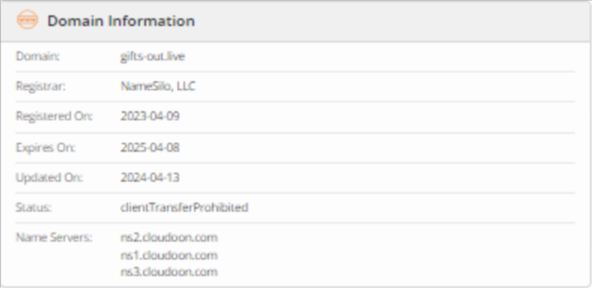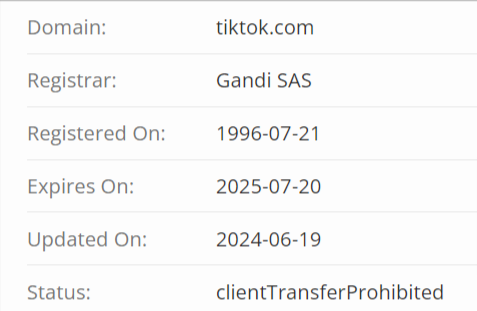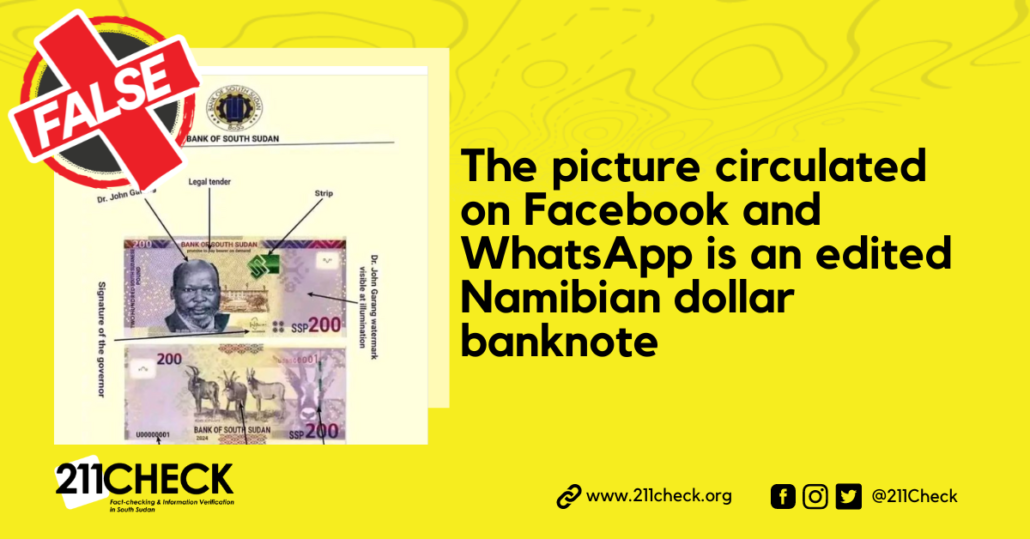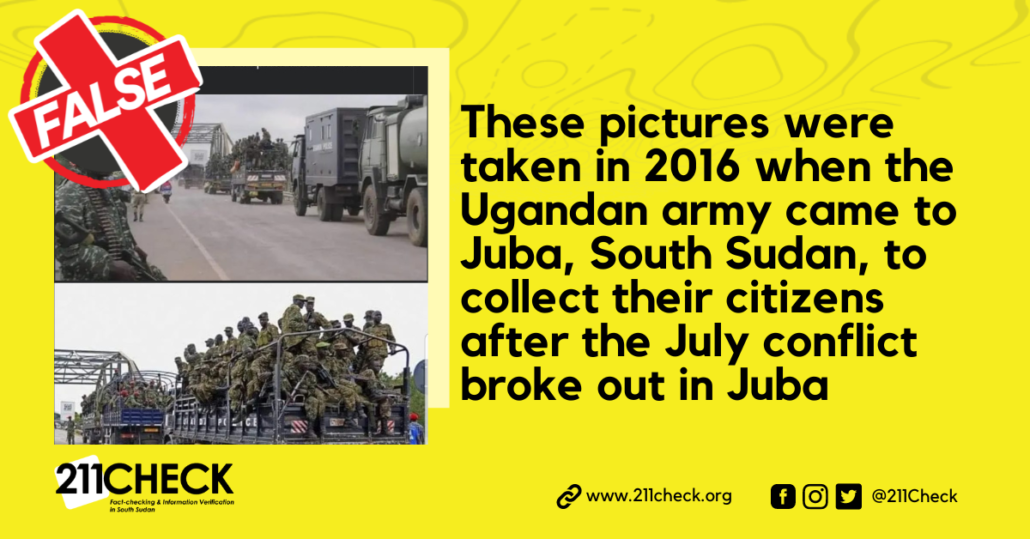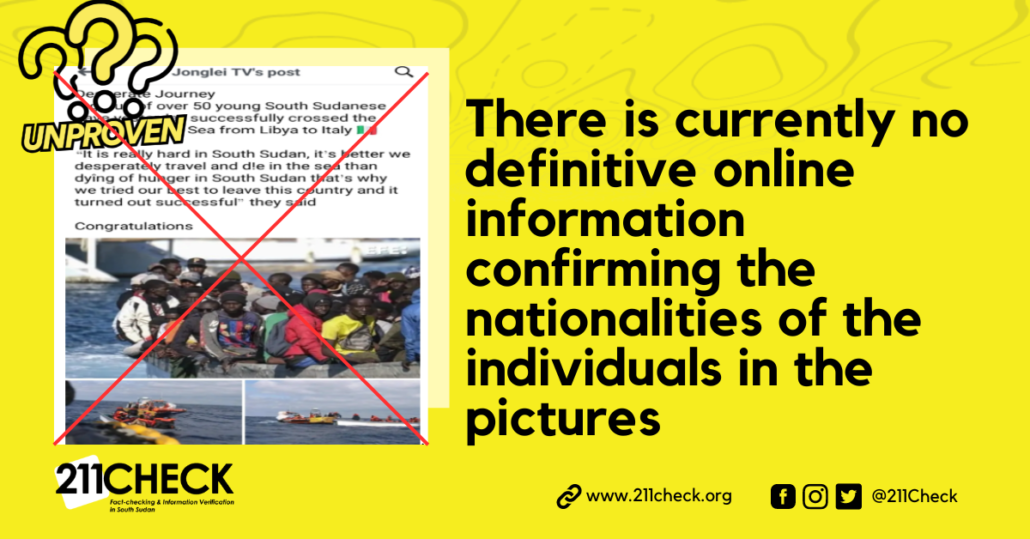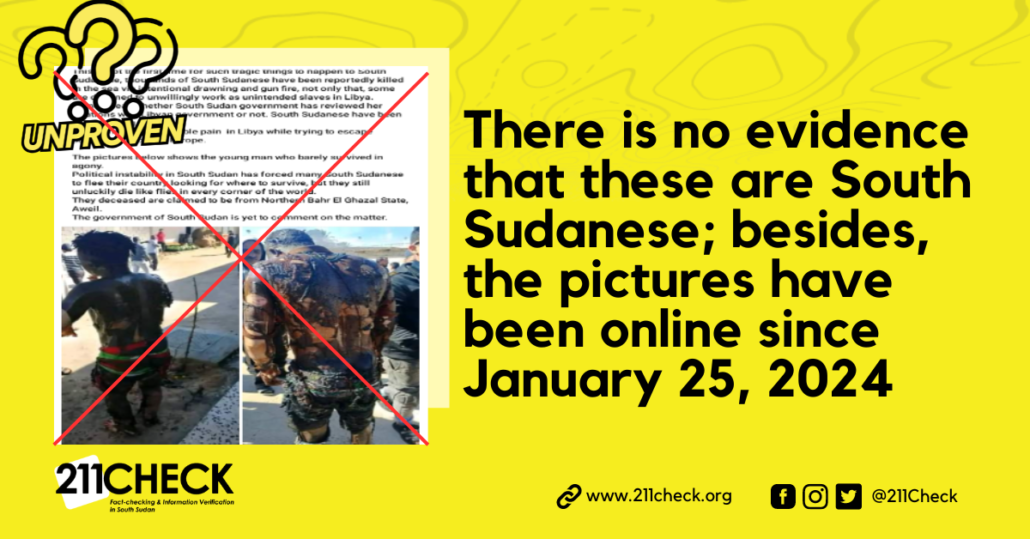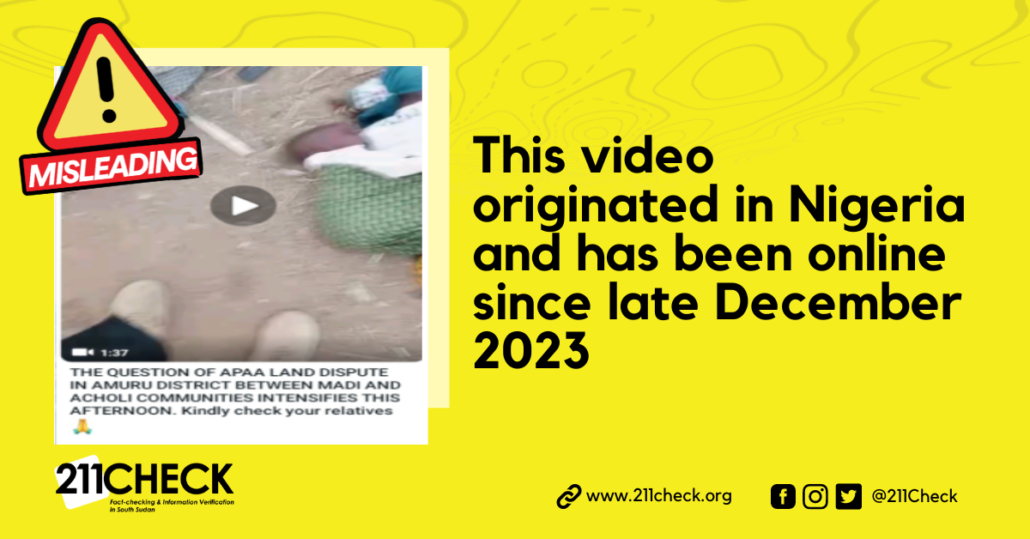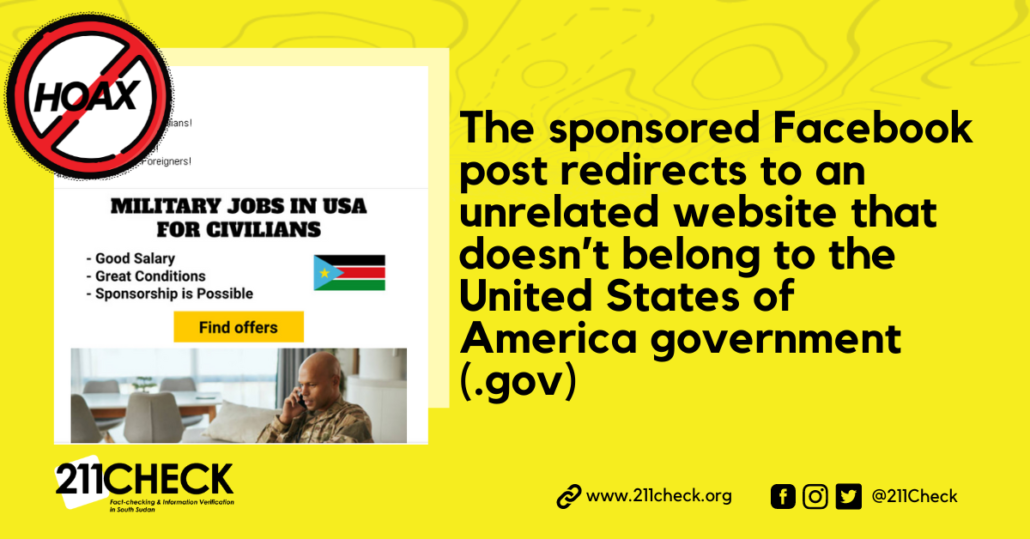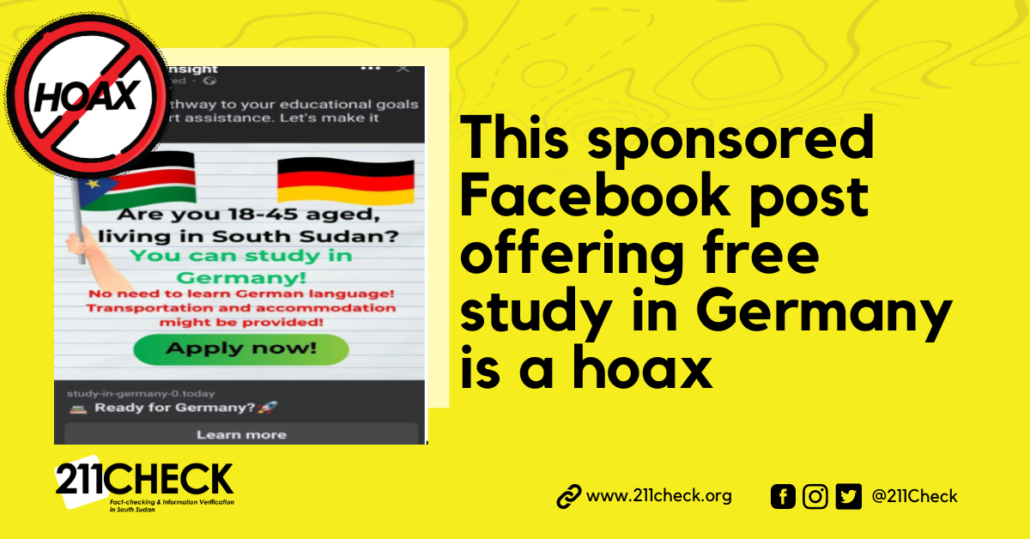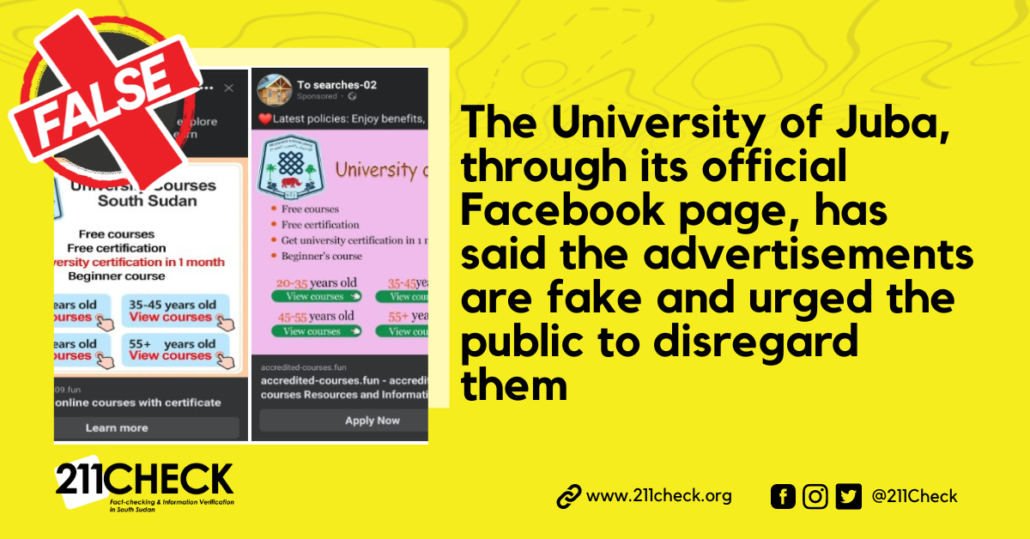Fact-check: Did the Ministry of General Education announce free online courses?
No, it is a hoax; neither the South Sudan Ministry of General Education nor its affiliates have announced this.
Writer: Makur Majeng
A sponsored Facebook post claiming to offer free online courses with approval from the Ministry of Education is a hoax. The page called Knowledge Language Information claimed that registration for August 2024 has been opened for 1,000 online courses, including free laptops and job referrals.
The page shared graphics bearing the map of South Sudan and the link to apply for the online courses.
“From July 2024, you can study 10 online courses approved by the South Sudan Ministry of Education for free. Includes free learning materials. 1,000 free online courses. Laptops provided for free. And job referral. Apply Now,” the sponsored Facebook post reads.
The screenshot of the Facebook post.
Upon clicking the link provided in the Facebook post, it sends a user to a webpage to select the course of his or her choice.
A screenshot of the webpage bearing the list of courses.
If a user selects any of the courses provided on the web interface, it will prompt him or her to tap on the “Visit Website” button. However, if the green button is clicked, it will automatically redirect to a different website.
The screenshot of its webpage
The page transparency shows that it was created on August 24, 2023
Claim Verification:
211 Check reached out to the Ministry of General Education and Instruction for comment via email, and it said there is no announcement related to the free course.
“We don’t have any affiliation with [the] online Facebook page [Knowledge Language Information], and please stay away from such claims. The Ministry of General Education hasn’t announced anything related to free course (s) with the benefit of job referral after completion, among other things,” reads a response from the Ministry of General Education and Instruction.
In addition to that, the Ministry of General Education’s E-learning platform has no active free online courses going on.
Earlier, a similar claim about the University of Juba offering free courses was debunked as false in January this year.
A WHOIS domain search for the claimed domain shows that the website was registered on February 6, 2024, and will expire on February 6, 2025, and it appears that the domain address is not legitimate.
A screenshot of the WHOIS domain for the claim.
Conclusion:
211 Check has found out that the Facebook post claiming that the South Sudan Ministry of Education is offering free online courses is a hoax and misleading.
The Facebook page is not affiliated with the Ministry of Education, and it is designed to scam individuals.
To ensure accuracy and transparency, we at 211 Check welcome corrections from our readers. If you spot an error in this article, please request a correction using this form. Our team will review your request and make the necessary corrections immediately, if any.
It’s vital to fight misinformation and disinformation in the media by avoiding fake news. Don’t share content you’re uncertain about. False information can harm and mislead people, risking their lives—Fact-check before sharing. For more details, visit https://211check.org/ or message us on WhatsApp at +211 921 350 435. #FactsMatter

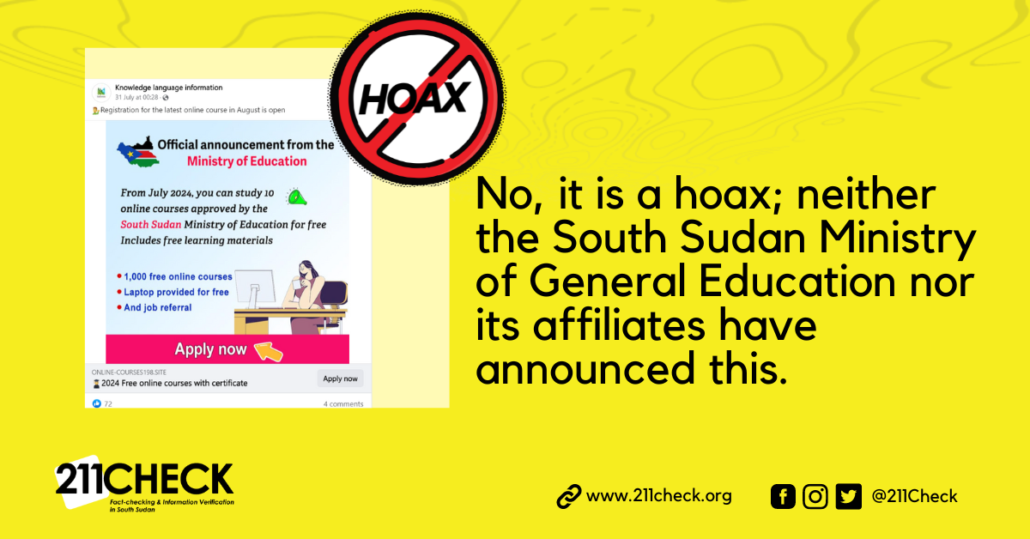 211 Check Website Graphics
211 Check Website Graphics 211 Check Graphics
211 Check Graphics




